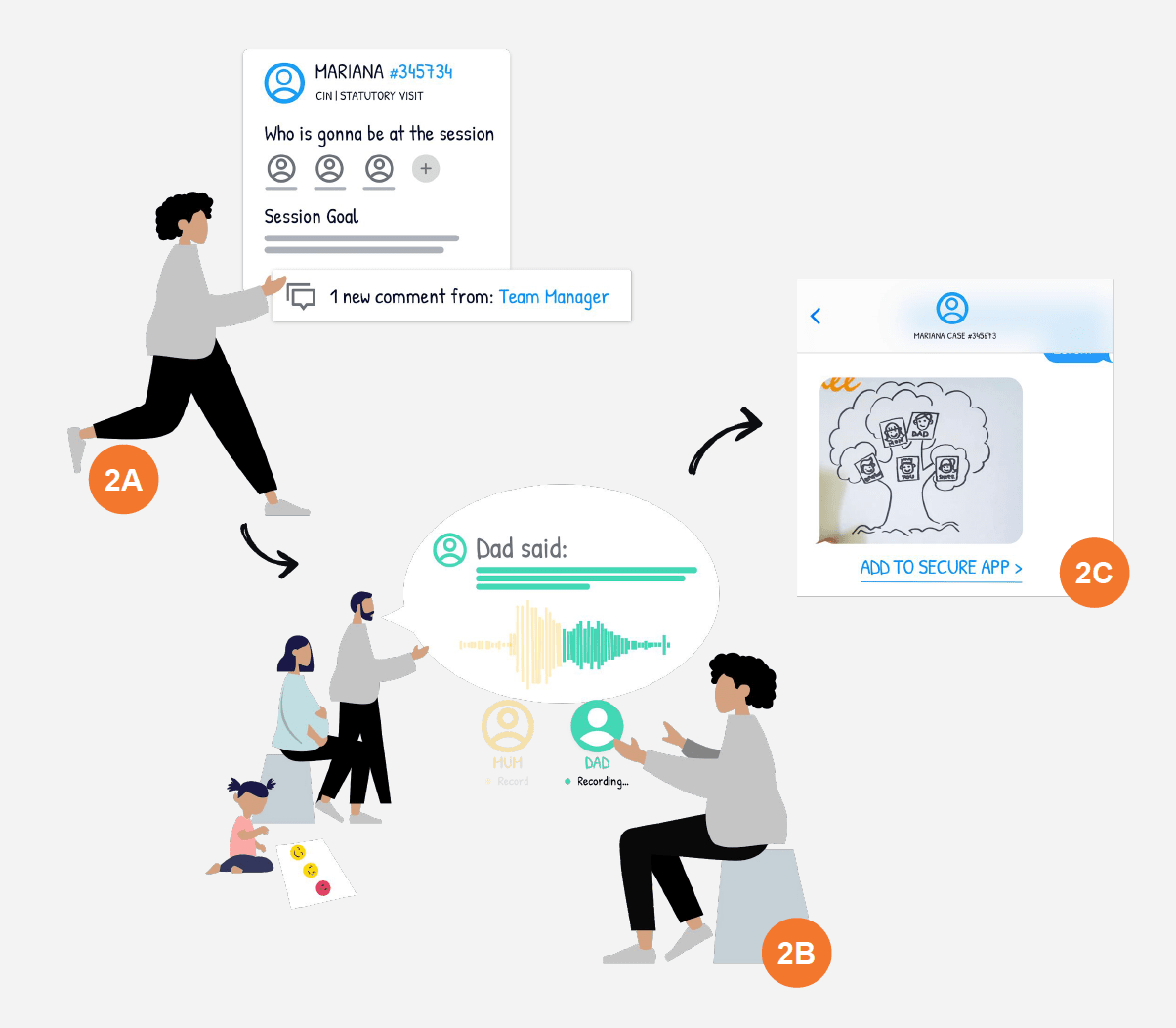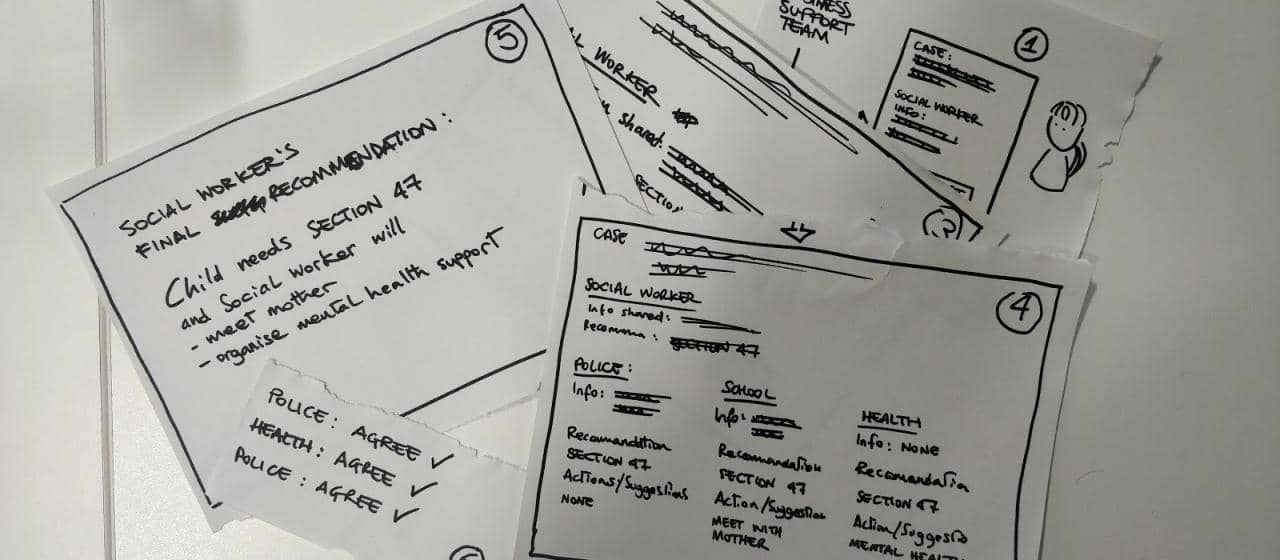Government
Improving children’s social care through technology
How might we improve the tools and requirements social workers need when recording visits with families?
The Challenge
Social workers are a lifeline to young families and children in the UK, but can be held back by the systems and technology they work with, spending as much as 80% of their time on administration tasks.
The Department for Education (DfE) recognised a need to free up this time, allowing for more direct work with children and families in need. The DfE holds a unique role in the world of children’s’ social care, and hopes to improve outcomes for children by creating more functional environments and tools for social workers. Building on DfE’s strategic approach, the ‘Whole System Look’ of holistic understanding of the digital and technology landscape in children’s social care, DfE invited FutureGov to undertake a discovery into how we might optimise digital and technology for social workers and enable better information sharing between partner agencies.
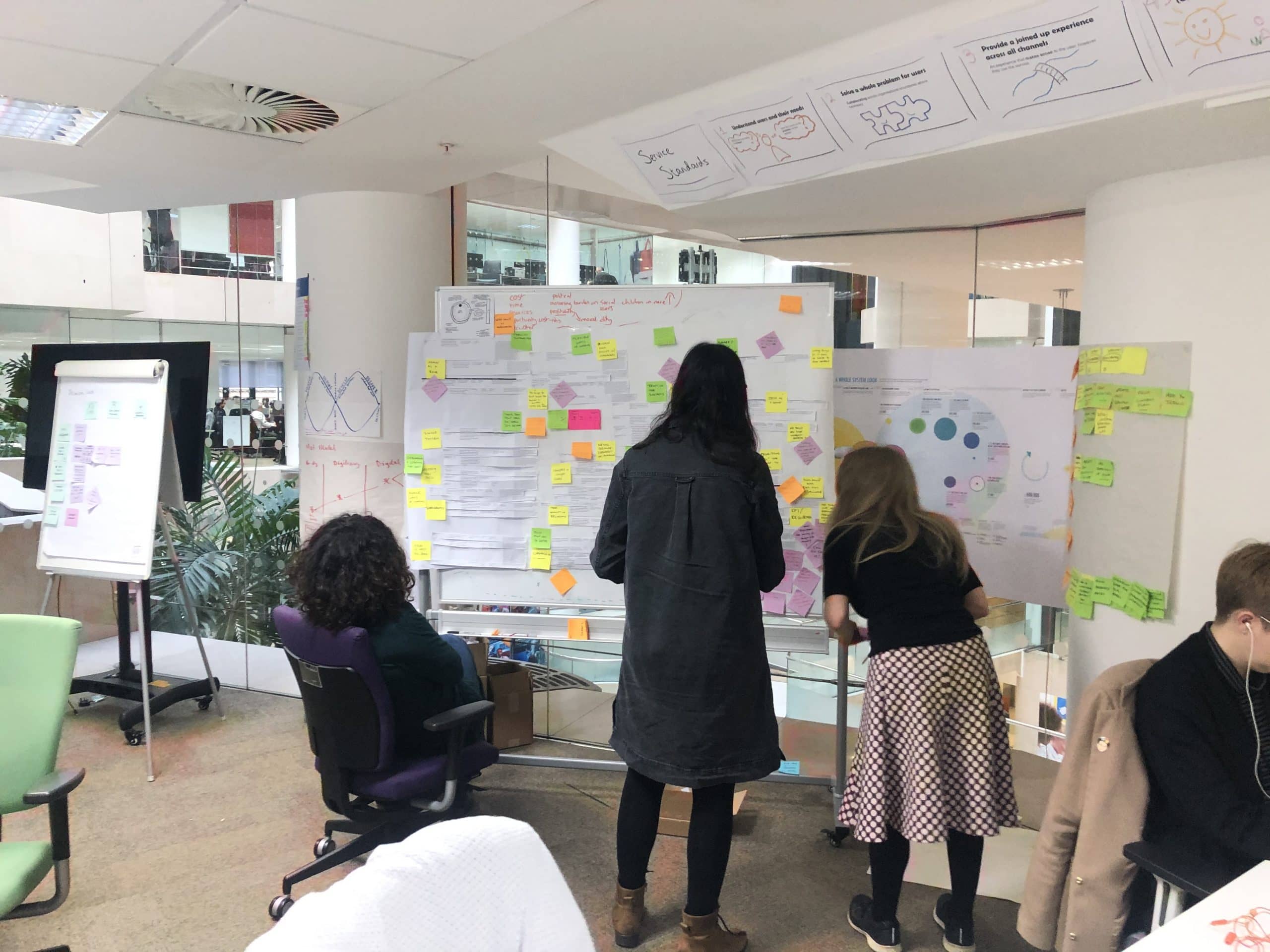
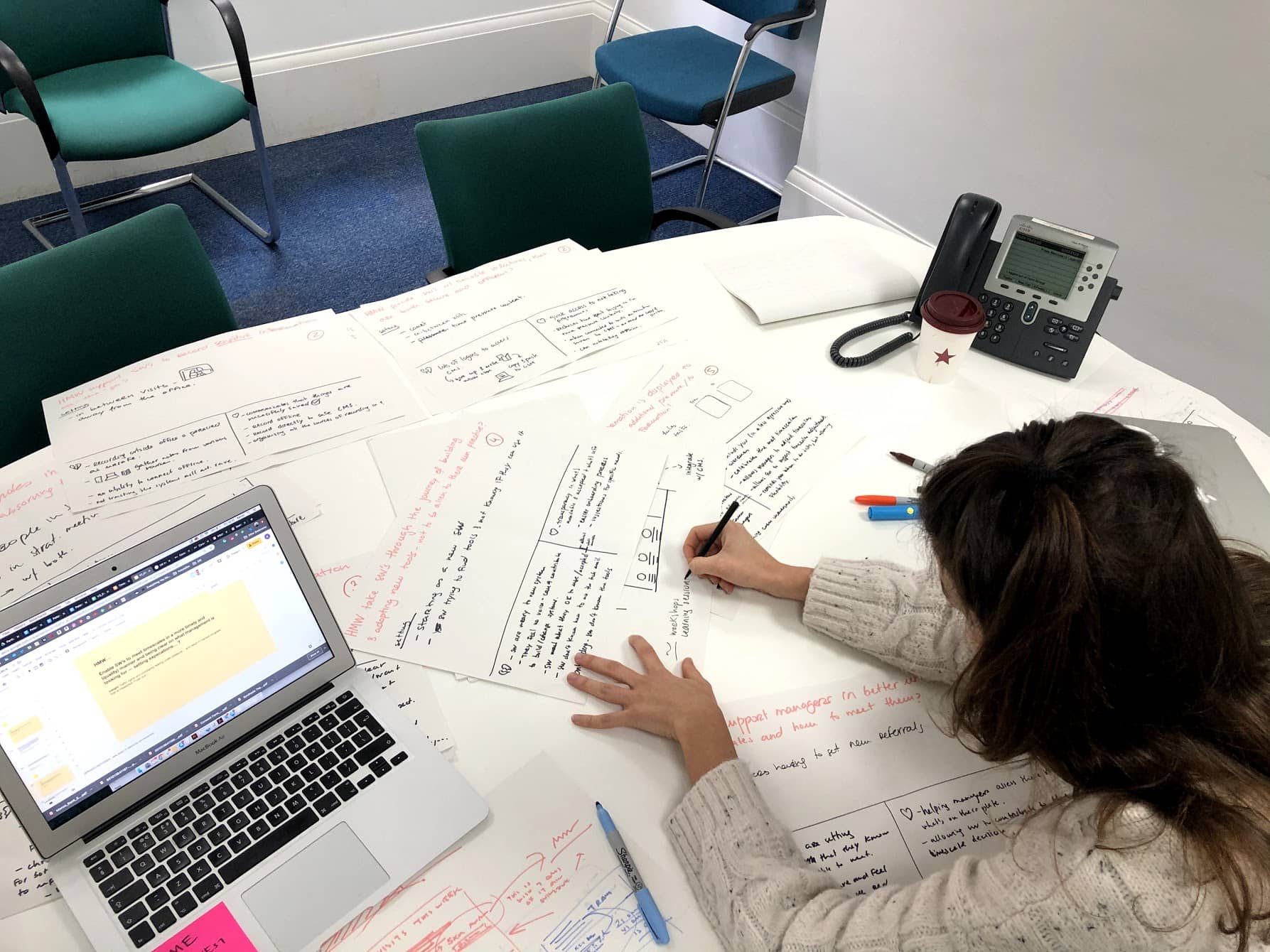
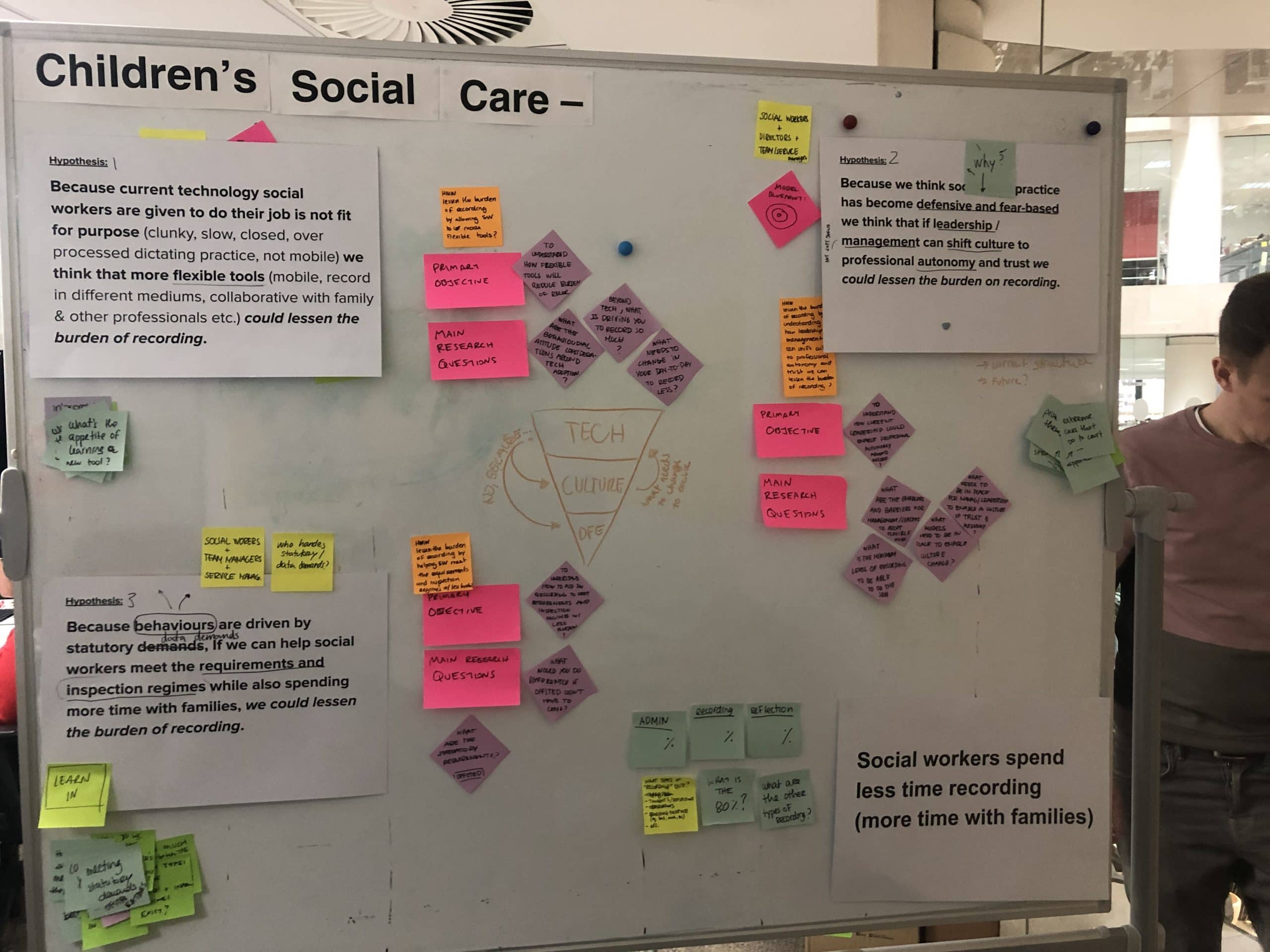
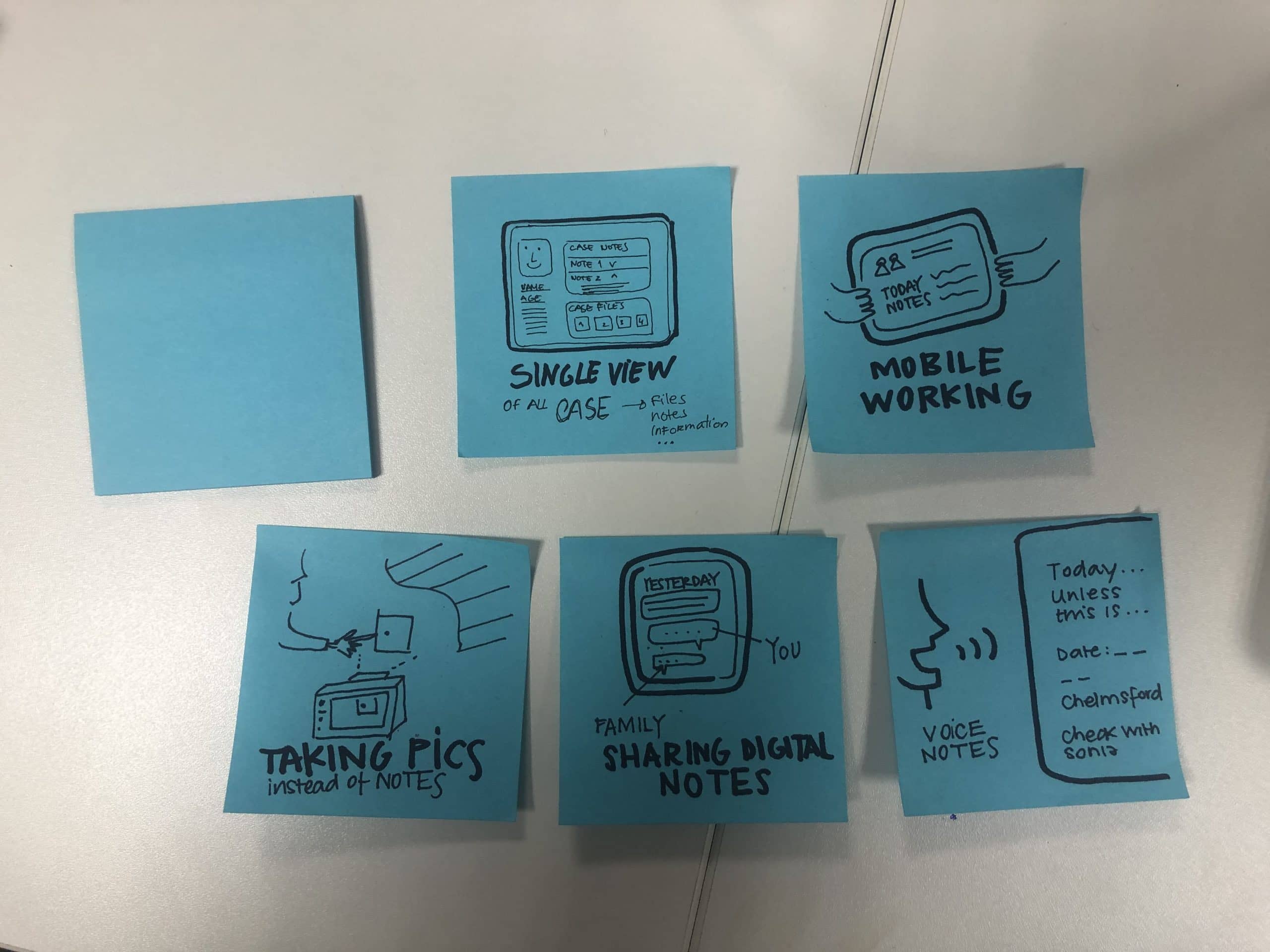
The Approach
Our discovery began with a rapid literature review, and a research approach that drew on years of experience, from both DfE and FutureGov, within children’s social care settings with system leaders, managers, social workers, multi-agency partners and families. We also engaged with DfE policy and digital colleagues to understand the wider policy landscape.
This existing work allowed us to narrow our brief, develop a set of hypotheses around existing problems and a research plan that helped us not only test some core assumptions but also learn about the vast challenges within children’s social care. We spoke with front door staff, social workers, team managers, health visitors and police officers at councils across the country. We valso varied our research locations to reach a wide range of council types in different geographic regions with varied OFSTED ratings to develop the fullest picture possible.
The Result
We found that social workers’ current tools are not enabling good practice and result in time spent on less valuable activities, namely interacting with families and children. Facing complex caseloads and ineffective technology, it can be hard to prioritise tasks, record content and complete all visits and assessments.
We identified an opportunity to enable more effective recording for social workers to help with prioritisation of time, recording on-the-go and recording for different audiences, all through a trusted system. We also found that front door staff often need to make crucial decisions quickly. To do so, they need basic information but do not have access to verified databases that contain a more complete understanding of a child’s experience.
In total there were six opportunities for technology to help improve children’s social care outcomes for families, practitioners and local authorities: Gathering information at the front door, Timely sharing of information with partners, Improving information sharing, Enabling more effective recording for social workers, Enabling stronger relationships around the family and child, Aligning leaders and social workers on best practice recording
